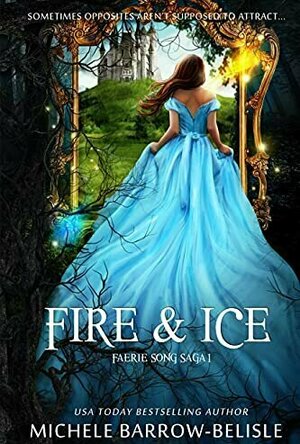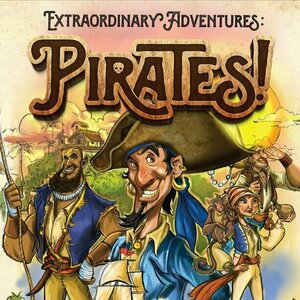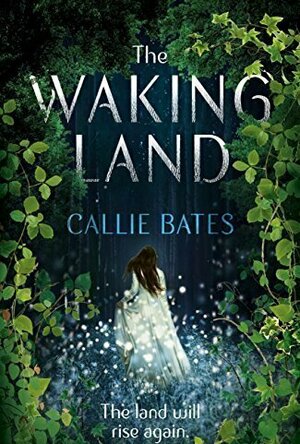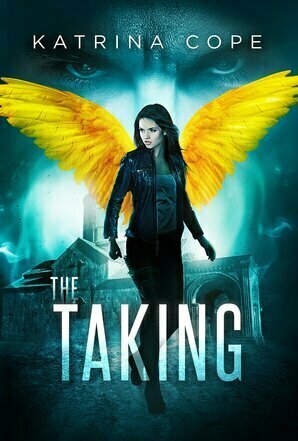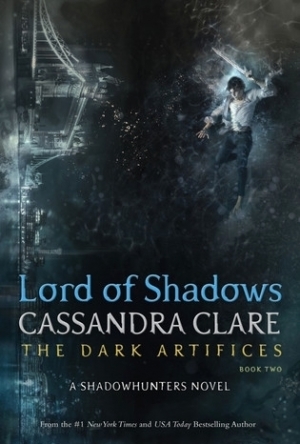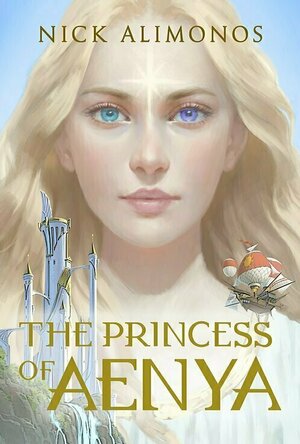Search
Merissa (13600 KP) rated Fire & Ice (Faerie Song Trilogy #1) in Books
Apr 12, 2023
When we first meet Lorelei she is quiet and unassuming, trying hard to remain that way as she works in her (deceased) Gran's cafe. However, things quickly start moving along as she invokes the wrath of a cheerleader who is dating her best friend, a boy appears out of nowhere and insinuates himself into her life (and she's completely okay with that) and we won't even get to the fact that when she was younger she thinks she did a deal with some sort of angel, except he had black raven's feathers on his wings, and he now controls her singing voice.
There is such a lot going on in this book and that is just the beginning. It all changes when she falls into Adrius' world and discovers that nothing is what it seems. I have to say that for someone who gives the impression of being unassuming in the 'normal' world, she certainly has a lot to say in a world she knows nothing about. I liked Lorelei but I did find her annoying at times with her 'quick wit' and complete disregard for anyone's opinion other than her own. And don't even get me started on how she can't do as she's told! Like I said, quiet and unassuming?!
The relationship between Lorelei and Adrius is complicated, to say the least, and certainly lives up to the title of the book. There is intensity and passion, along with a frisson of the forbidden. There is also, however, a strong hint of a love triangle which I'm really hoping doesn't come to anything. There is enough going on, and they have enough against them, without the need for a triangle. This would just add something completely unnecessary in my opinion but then I'm not a big fan of them anyway.
On the whole, this is a fast-paced, action-packed fantasy novel that starts off a new series with oomph. Definitely recommended to all YA Fantasy fans out there.
* A copy of this book was provided to me with no requirements for a review. I voluntarily read this book; the comments here are my honest opinion. *
Merissa
Archaeolibrarian - I Dig Good Books!
August 27, 2016
There is such a lot going on in this book and that is just the beginning. It all changes when she falls into Adrius' world and discovers that nothing is what it seems. I have to say that for someone who gives the impression of being unassuming in the 'normal' world, she certainly has a lot to say in a world she knows nothing about. I liked Lorelei but I did find her annoying at times with her 'quick wit' and complete disregard for anyone's opinion other than her own. And don't even get me started on how she can't do as she's told! Like I said, quiet and unassuming?!
The relationship between Lorelei and Adrius is complicated, to say the least, and certainly lives up to the title of the book. There is intensity and passion, along with a frisson of the forbidden. There is also, however, a strong hint of a love triangle which I'm really hoping doesn't come to anything. There is enough going on, and they have enough against them, without the need for a triangle. This would just add something completely unnecessary in my opinion but then I'm not a big fan of them anyway.
On the whole, this is a fast-paced, action-packed fantasy novel that starts off a new series with oomph. Definitely recommended to all YA Fantasy fans out there.
* A copy of this book was provided to me with no requirements for a review. I voluntarily read this book; the comments here are my honest opinion. *
Merissa
Archaeolibrarian - I Dig Good Books!
August 27, 2016
KatieLouCreate (162 KP) rated Empire of the Vampire in Books
Jul 10, 2023
Empire of the Vampire
This book is not for the feint hearted. Not only is it decidedly grotesque and gruesome, but its also a monster of a book, coming in at 725 pages with another book on the way.
It has been twenty-seven long years since the last sunrise. For nearly three decades, vampires have waged war against humanity; building their eternal empire even as they tear down our own.
Gabriel de León is a silversaint: a member of a holy brotherhood dedicated to defending realm and church from the creatures of the night. But even the Silver Order couldn’t stem the tide once daylight failed us, and now, only Gabriel remains.
Imprisoned by the very monsters he vowed to destroy, the last silversaint is forced to tell his story. A story of legendary battles and forbidden love, of faith lost and friendships won, of the Wars of the Blood and the Forever King and the quest for humanity’s last remaining hope:
The Holy Grail.
The book is dark and gruesome, but also delightfully entertaining. Kristoff puts an original spin on the vampire world and created a deep, well-rounded character with the biggest chip on his shoulder. All the characters are well-developed, to be honest.
The humour, as expected, is dark. Which is what makes it so great. I found myself laughing out loud in parts. I loved the witty banter and insults from the characters.
My woe with this book was, though I enjoyed it, it did feel like I was reading a 725 page book. Sometimes the time flew, and others I found myself counting the pages wondering how much longer this was going to go on for. I think the story could have been shorter without losing anything vital.
Read if you like:
Adult fantasy
Legendary battles
Blood and gore/violence
Religious occult
Dark humour
Don't read if:
You are a child
And dont like:
Prolific swearing
Sexual Content
Violence
Religious Themes
Trigger warnings:
Anything mentioned above
Drug addiction
Child abuse
Homophobia
It reminds me of Interview With a Vampire meets Van Helsing...
It has been twenty-seven long years since the last sunrise. For nearly three decades, vampires have waged war against humanity; building their eternal empire even as they tear down our own.
Gabriel de León is a silversaint: a member of a holy brotherhood dedicated to defending realm and church from the creatures of the night. But even the Silver Order couldn’t stem the tide once daylight failed us, and now, only Gabriel remains.
Imprisoned by the very monsters he vowed to destroy, the last silversaint is forced to tell his story. A story of legendary battles and forbidden love, of faith lost and friendships won, of the Wars of the Blood and the Forever King and the quest for humanity’s last remaining hope:
The Holy Grail.
The book is dark and gruesome, but also delightfully entertaining. Kristoff puts an original spin on the vampire world and created a deep, well-rounded character with the biggest chip on his shoulder. All the characters are well-developed, to be honest.
The humour, as expected, is dark. Which is what makes it so great. I found myself laughing out loud in parts. I loved the witty banter and insults from the characters.
My woe with this book was, though I enjoyed it, it did feel like I was reading a 725 page book. Sometimes the time flew, and others I found myself counting the pages wondering how much longer this was going to go on for. I think the story could have been shorter without losing anything vital.
Read if you like:
Adult fantasy
Legendary battles
Blood and gore/violence
Religious occult
Dark humour
Don't read if:
You are a child
And dont like:
Prolific swearing
Sexual Content
Violence
Religious Themes
Trigger warnings:
Anything mentioned above
Drug addiction
Child abuse
Homophobia
It reminds me of Interview With a Vampire meets Van Helsing...
Purple Phoenix Games (2266 KP) rated Extraordinary Adventures: Pirates in Tabletop Games
Jul 16, 2021
I feel like I try to open pirate-themed games with silly faux pirate talk and it’s getting old. So I won’t do that this time. What I will do is start by saying we reviewed another Forbidden Games title (Raccoon Tycoon) to very high praise, so we expect nothing but greatness now. Does Extraordinary Adventures: Pirates! (or from now on just Pirates) match the quality we enjoy in Raccoon Tycoon? Yarr.
Pirates is a piratey, deck-building, racing game for two to six players attempting to reach Trinidad with the most VP and greatest booty (interpret that as you will). To setup, lay the humongous board on the table and populate the merchant ship locations with the appropriate number of supply crates pulled blindly from the bag. Each player will place one of their ships on the starting locations of each of the three tracks upon the board. Shuffle the Merchant Deck and place it in its position on the board face-down. Shuffle the Port Deck and set it near the board face-down but reveal the top three cards as the offer. Shuffle the treasure tiles and reveal a number of them equal to three times the number of players plus one more. Give each player their starting deck to shuffle and then draw five as a starting hand. The race may now begin!
On a player’s turn they will play three cards from their hand and “move their ships accordingly” says the rulebook. Initially we were not sure if that meant movement cards could all be played to the same ship or each of the three cards needed to be assigned to each of the player ships on the three different tracks so we decided to use the latter rule logic. Cards will contain a number in the lower right hand corner to signify how many spaces a ship may move this turn. Some cards will also have a special power written beside the movement number that may be used instead of the movement. The starting deck contains one card that will be able to thin the deck using this type of special power.
When a player’s ship meets either a Merchant ship or moves into a Port the movement ends immediately to resolve these encounters. When plundering a Merchant ship players will simply swipe the supply crates from the board and draw a Merchant card to their discard pile. When in Port, players will be able to draw one of the face-up Port cards in the offer or the top card from the face-down draw deck. In addition, players will be able to use the supply crates collected as currency to purchase the revealed treasure tiles near the board for VP at game end. Once all card have been played and subsequent actions played as a result the next player takes their turn. Play continues in this fashion until one ship reaches Trinidad and ends the game. The pirate captain with the most VP from cards, treasure tiles, and placement on each track will be the winner with the greatest booty (not in the rules, but I like to play that way).
Components. We were impressed with the components in Raccoon Tycoon, but Pirates scores well above it in component impressiveness. The board is massive and features incredible art. It looks just like a map and it’s simply gorgeous. The cards are all fine quality and the art on them is very good. The true component stars in this game are the supply crates and the player ships. Okay, so I love playing games that feel deluxe. I’m sure I’m not alone with that statement, but when I tell you that these little crates are amazing I meant it. How easy would it have been to just throw in a bunch of colored wooden cubes like 98% of games and call it a day? Easy peasy. But no, not good enough. Pirates goes the extra mile and gives us molded plastic (or resin, idk I’m not a chemist) boxes that look like supply boxes. And the pirate ships? The same super incredibly quality. They are minis where standees could have worked just fine. And they are DETAILED. I love them so much. Components score a big time happy face from us.
But the gameplay. Components are great but make the game they do not. However, having these great components only enhance the already wonderful gameplay here. I love deck-building games and it might be my favorite style of game. I also genuinely love when games throw in additional styles to complement the deck-building. Don’t get me wrong, we all love our Legendary: Marvel DBG (it’s a Golden Feather Award winner after all), but that’s just straight up deck-building. I quite enjoy another little deck-builder that adds a map and an additional way to use the deck-building cards in harmony: Trains. In Pirates we have deck-building paired with racing on a giant board. It just fits the piratey theme so well and combines deck-building with what I love from the game Jamaica.
It’s no surprise that I personally rated this quite high. Though not all our team has had a chance to play it yet, I believe they would all love it as much as I do. Purple Phoenix Games gives Extraordinary Adventures: Pirates! a plunderingly wunderful (I did that on purpose) 11 / 12. Want to add to your deck-building experience with a race using excellent components and art? Pick up a copy from your FLGS today!
Pirates is a piratey, deck-building, racing game for two to six players attempting to reach Trinidad with the most VP and greatest booty (interpret that as you will). To setup, lay the humongous board on the table and populate the merchant ship locations with the appropriate number of supply crates pulled blindly from the bag. Each player will place one of their ships on the starting locations of each of the three tracks upon the board. Shuffle the Merchant Deck and place it in its position on the board face-down. Shuffle the Port Deck and set it near the board face-down but reveal the top three cards as the offer. Shuffle the treasure tiles and reveal a number of them equal to three times the number of players plus one more. Give each player their starting deck to shuffle and then draw five as a starting hand. The race may now begin!
On a player’s turn they will play three cards from their hand and “move their ships accordingly” says the rulebook. Initially we were not sure if that meant movement cards could all be played to the same ship or each of the three cards needed to be assigned to each of the player ships on the three different tracks so we decided to use the latter rule logic. Cards will contain a number in the lower right hand corner to signify how many spaces a ship may move this turn. Some cards will also have a special power written beside the movement number that may be used instead of the movement. The starting deck contains one card that will be able to thin the deck using this type of special power.
When a player’s ship meets either a Merchant ship or moves into a Port the movement ends immediately to resolve these encounters. When plundering a Merchant ship players will simply swipe the supply crates from the board and draw a Merchant card to their discard pile. When in Port, players will be able to draw one of the face-up Port cards in the offer or the top card from the face-down draw deck. In addition, players will be able to use the supply crates collected as currency to purchase the revealed treasure tiles near the board for VP at game end. Once all card have been played and subsequent actions played as a result the next player takes their turn. Play continues in this fashion until one ship reaches Trinidad and ends the game. The pirate captain with the most VP from cards, treasure tiles, and placement on each track will be the winner with the greatest booty (not in the rules, but I like to play that way).
Components. We were impressed with the components in Raccoon Tycoon, but Pirates scores well above it in component impressiveness. The board is massive and features incredible art. It looks just like a map and it’s simply gorgeous. The cards are all fine quality and the art on them is very good. The true component stars in this game are the supply crates and the player ships. Okay, so I love playing games that feel deluxe. I’m sure I’m not alone with that statement, but when I tell you that these little crates are amazing I meant it. How easy would it have been to just throw in a bunch of colored wooden cubes like 98% of games and call it a day? Easy peasy. But no, not good enough. Pirates goes the extra mile and gives us molded plastic (or resin, idk I’m not a chemist) boxes that look like supply boxes. And the pirate ships? The same super incredibly quality. They are minis where standees could have worked just fine. And they are DETAILED. I love them so much. Components score a big time happy face from us.
But the gameplay. Components are great but make the game they do not. However, having these great components only enhance the already wonderful gameplay here. I love deck-building games and it might be my favorite style of game. I also genuinely love when games throw in additional styles to complement the deck-building. Don’t get me wrong, we all love our Legendary: Marvel DBG (it’s a Golden Feather Award winner after all), but that’s just straight up deck-building. I quite enjoy another little deck-builder that adds a map and an additional way to use the deck-building cards in harmony: Trains. In Pirates we have deck-building paired with racing on a giant board. It just fits the piratey theme so well and combines deck-building with what I love from the game Jamaica.
It’s no surprise that I personally rated this quite high. Though not all our team has had a chance to play it yet, I believe they would all love it as much as I do. Purple Phoenix Games gives Extraordinary Adventures: Pirates! a plunderingly wunderful (I did that on purpose) 11 / 12. Want to add to your deck-building experience with a race using excellent components and art? Pick up a copy from your FLGS today!
Acanthea Grimscythe (300 KP) rated The Waking Land (The Waking Land, #1) in Books
May 16, 2018
Looking for a delightful, magical read? Callie Bates’s The Waking Land may sate your hunger. With several strong, female leads (like Rhia Knoll), the practice of forbidden arts, war, and just a taste of romance, this book easily lands as one of my most enjoyable reads so far this year.
I can honestly say this is one of the few books where the main character begins as the weakest. When we meet Lady Elanna Valtai, she appears weak and, quite honestly, brainwashed by her Ereni up-bringing. Throughout the first two-thirds of the novel, El proves to be unreliable. She is clueless as to where her loyalties truly lie, even as the truth rams itself down her throat. Fortunately, those she counts among her friends know what they’re doing and don’t have to rely on her for quite a while.
Loyce, the new Queen of Eren, on the other hand is an awful brat. Unfaithful to her husband (who readers never meet), she colludes with an equally disgusting noble boy, Denis Falconier. Their command over the Butcher of Novarre strikes fear into the hearts of those that dare to rebel. And the Butcher? He’s an altogether interesting figure on his own. Trust me on that one.
Eren and Caeris, the lands where this tale takes place, on beautifully rendered, proving Bates’s strength with the written word. Her command of language coupled with her love of nature come together seamlessly, visualizing a truly fantastic world. The story Bates weaves into this battle-worn land offers readers a faint taste of epic fantasy, in a style pleasing for fans of young adult literature. For some, The Waking Land may be the gateway to delving into high fantasy – Bates’s concept of magic is that wonderful.
The Waking Land is a fantastic ride through a world that fears magic. It is the timeless tale of how war erodes nations. Because of El’s wishy-washy portrayal and the sheer fact that we don’t see a lot of action until the last fifteen percent of the book, I cannot give this one five stars. A four though, certainly.
I would like to thank NetGalley, the publisher, and the author for providing me with a free copy of this book for the purpose of unbiased review.
I can honestly say this is one of the few books where the main character begins as the weakest. When we meet Lady Elanna Valtai, she appears weak and, quite honestly, brainwashed by her Ereni up-bringing. Throughout the first two-thirds of the novel, El proves to be unreliable. She is clueless as to where her loyalties truly lie, even as the truth rams itself down her throat. Fortunately, those she counts among her friends know what they’re doing and don’t have to rely on her for quite a while.
Loyce, the new Queen of Eren, on the other hand is an awful brat. Unfaithful to her husband (who readers never meet), she colludes with an equally disgusting noble boy, Denis Falconier. Their command over the Butcher of Novarre strikes fear into the hearts of those that dare to rebel. And the Butcher? He’s an altogether interesting figure on his own. Trust me on that one.
Eren and Caeris, the lands where this tale takes place, on beautifully rendered, proving Bates’s strength with the written word. Her command of language coupled with her love of nature come together seamlessly, visualizing a truly fantastic world. The story Bates weaves into this battle-worn land offers readers a faint taste of epic fantasy, in a style pleasing for fans of young adult literature. For some, The Waking Land may be the gateway to delving into high fantasy – Bates’s concept of magic is that wonderful.
The Waking Land is a fantastic ride through a world that fears magic. It is the timeless tale of how war erodes nations. Because of El’s wishy-washy portrayal and the sheer fact that we don’t see a lot of action until the last fifteen percent of the book, I cannot give this one five stars. A four though, certainly.
I would like to thank NetGalley, the publisher, and the author for providing me with a free copy of this book for the purpose of unbiased review.
Phil Leader (619 KP) rated The Taking (Afterlife #2) in Books
Nov 26, 2019
After her actions at the end of the first book in the series - Fledgling - the human-turned-angel Aurora has drawn the unwelcome attention of Separus, one of the most powerful of the demons. He covets her power and is determined to capture her and turn her to the side of darkness.
Aware of this Archangel Michael, leader of the angels, assigns her and her friends to be further trained by Zacharias, a rather bad tempered 'earthbound' angel who is an expert in fighting and weapons. As their - at times brutal - training takes place the demons are plotting to capture the three angel friends by using the ultimate bait for Aurora - Ethan. Aurora will need to make a choice, and not an easy one.
The Taking continues more-or-less where Fledgling left off although there is a distinct change of tone. Whereas in the first book Aurora, Cindy and Ben are out and about in the world saving innocents, here they are in training for very much of the time. In other hands this might be a disappointment, but Cope has an eye for telling the interesting bits of stories and not labouring the mundane. It also helps that the training is somewhat unusual, as is the teacher. As the major new character Zacharias is very well drawn, suitably grumpy and terse at being given 'humans' to train, as he sees it.
When conflict with the demons arises Cope again shows the flair for describing fight scenes from the first book and these, as would be expected, are far more intense battles with much more at stake. These are not serene angels gently guiding their human charges through life. These are kick-ass super heroes who are not afraid to put themselves in the way of extreme danger for what they believe is right.
Aurora must also confront her feelings for both Ethan, her human love, and Ben her angel friend. Both relationships are forbidden and this just complicates things further. I suspect that this aspect of the books would appeal more to female young adult readers but they are well written even if you will probably be shouting at the book telling Aurora not to be so silly at points.
Overall a second strong showing in this series and very recommended. If the angel/demon theme doesn't sound like your cup of tea then just give it a go. You will be pleasantly surprised
Aware of this Archangel Michael, leader of the angels, assigns her and her friends to be further trained by Zacharias, a rather bad tempered 'earthbound' angel who is an expert in fighting and weapons. As their - at times brutal - training takes place the demons are plotting to capture the three angel friends by using the ultimate bait for Aurora - Ethan. Aurora will need to make a choice, and not an easy one.
The Taking continues more-or-less where Fledgling left off although there is a distinct change of tone. Whereas in the first book Aurora, Cindy and Ben are out and about in the world saving innocents, here they are in training for very much of the time. In other hands this might be a disappointment, but Cope has an eye for telling the interesting bits of stories and not labouring the mundane. It also helps that the training is somewhat unusual, as is the teacher. As the major new character Zacharias is very well drawn, suitably grumpy and terse at being given 'humans' to train, as he sees it.
When conflict with the demons arises Cope again shows the flair for describing fight scenes from the first book and these, as would be expected, are far more intense battles with much more at stake. These are not serene angels gently guiding their human charges through life. These are kick-ass super heroes who are not afraid to put themselves in the way of extreme danger for what they believe is right.
Aurora must also confront her feelings for both Ethan, her human love, and Ben her angel friend. Both relationships are forbidden and this just complicates things further. I suspect that this aspect of the books would appeal more to female young adult readers but they are well written even if you will probably be shouting at the book telling Aurora not to be so silly at points.
Overall a second strong showing in this series and very recommended. If the angel/demon theme doesn't sound like your cup of tea then just give it a go. You will be pleasantly surprised
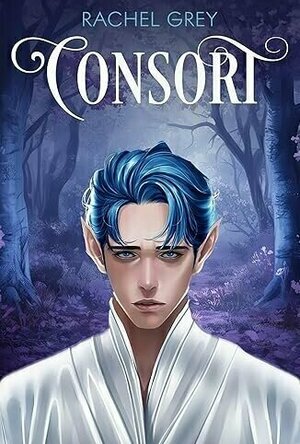
Consort (Nobel Reckoning #1)
Book
Could a Fae really satisfy an Omega shifter’s heat? Would he risk his life for the chance to try? ...
Fantasy Romance Omegaverse
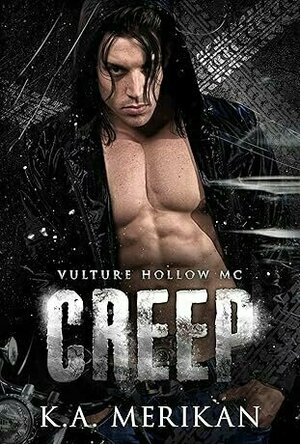
Creep (Vulture Hollow MC #2)
Book
He’s my dream, my nightmare, my obsession. Creep. Weirdo. Stalker. Monster under the bed. ...
Contemporary Dark MM Romance Morally Grey
Ivana A. | Diary of Difference (1171 KP) rated Lord Of Shadows in Books
Feb 3, 2020
<a href="https://diaryofdifference.com/">Blog</a>; | <a href="https://www.facebook.com/diaryofdifference/">Facebook</a>; | <a href="https://twitter.com/DiaryDifference">Twitter</a>; | <a href="https://www.instagram.com/diaryofdifference/">Instagram</a>; | <a href="https://www.pinterest.co.uk/diaryofdifference/pins/">Pinterest</a>;
<img src="https://i1.wp.com/diaryofdifference.com/wp-content/uploads/2019/07/Lord-of-Shadows-1.jpg?w=1920&ssl=1"/>;
I was lucky enough to be approached by LoveReading to review and join the blog tour for The Dark Artifices series by Cassandra Clare. Starting today, and posting every Wednesday, you will get to see what I thought about this series.
<b><i>Series: The Dark Artifices</i></b>
#1 <a href="https://www.goodreads.com/review/show/2843390110">Lady Midnight</a> - ★★★★
#2 <a href="https://www.goodreads.com/review/show/2865130437">Lord of Shadows</a> - ★★★★★
#3 <a href="https://www.goodreads.com/review/show/2865131320">Queen of Air and Darkness</a> - ★★★★★
<img src="https://i2.wp.com/diaryofdifference.com/wp-content/uploads/2019/06/Book-Review-Banner-5.png?ssl=1&w=510"/>;
Welcome back to the sequel of The Dark Artifices series. After reading the first book and getting to know all the new characters, the second book contained by far more detail and more adventures throughout.
The book starts where it left all, after the team defeats Malcolm, but now new dangers arise, as sea demons start summoning, and the Faeries, as usual, are planning some mischief.
Emma, as you might have guessed, is still my favourite. But, this time, we got to see more about the ”little children”, Kit, Ty and Livvy. As I kept reading and finding out more about them, I realised them I loved them more and more every single page.
I loved how Cassandra Clare managed to put differences aside, and teach us how it’s okay to be different and you will be accepted by the real friends in your life. While Ty is autistic and unique in his own way, he is accepted and loved by his family and friends, and his uniqueness makes him lovable character to all readers as well.
<b><i>We fear things because we value them. We fear losing people because we love them. We fear dying because we value being alive. Don’t wish you didn’t fear anything. All that would mean is that you didn’t feel anything. </i></b>
The best part of the book for me was everything that had to do with Faerie land. All the writing about how beautiful, but at the same time dangerous it is just made me want it more and more. So beautiful, and yet so cruel. A world where you get enchanted and then hurt, a world where time is irrelevant and beauty is forever.
Mark and Christina’s dance was one of the moments I will cherish forever in this book, and I don’t fall easily for romantic scenes.
Lord of Shadows was amazing, with so many adventures and different plots and character developments throughout. We have a lot of characters, and they all develop in their own way, and we get all their backgrounds and feelings, and actions that make them grow in a certain way, and each of these moments was precious to me in a different way, but all the same. We have Emma seeing her father (or an illusion of it) and having to kill him. Then there is her forbidden love to Julian. We have Kit, the lost Herondale and how he slowly fits into the academy. And most importantly, we have Magnus appearing in the book with Alec, and singing Spanish lullabies to his son.
So many amazing moments, too many bookmarks, and only one feeling of love towards everything Shadowhunter-y. I can’t wait to dive into the next book. Looking forward to it!
<img src="https://i1.wp.com/diaryofdifference.com/wp-content/uploads/2019/07/Lord-of-Shadows-1.jpg?w=1920&ssl=1"/>;
I was lucky enough to be approached by LoveReading to review and join the blog tour for The Dark Artifices series by Cassandra Clare. Starting today, and posting every Wednesday, you will get to see what I thought about this series.
<b><i>Series: The Dark Artifices</i></b>
#1 <a href="https://www.goodreads.com/review/show/2843390110">Lady Midnight</a> - ★★★★
#2 <a href="https://www.goodreads.com/review/show/2865130437">Lord of Shadows</a> - ★★★★★
#3 <a href="https://www.goodreads.com/review/show/2865131320">Queen of Air and Darkness</a> - ★★★★★
<img src="https://i2.wp.com/diaryofdifference.com/wp-content/uploads/2019/06/Book-Review-Banner-5.png?ssl=1&w=510"/>;
Welcome back to the sequel of The Dark Artifices series. After reading the first book and getting to know all the new characters, the second book contained by far more detail and more adventures throughout.
The book starts where it left all, after the team defeats Malcolm, but now new dangers arise, as sea demons start summoning, and the Faeries, as usual, are planning some mischief.
Emma, as you might have guessed, is still my favourite. But, this time, we got to see more about the ”little children”, Kit, Ty and Livvy. As I kept reading and finding out more about them, I realised them I loved them more and more every single page.
I loved how Cassandra Clare managed to put differences aside, and teach us how it’s okay to be different and you will be accepted by the real friends in your life. While Ty is autistic and unique in his own way, he is accepted and loved by his family and friends, and his uniqueness makes him lovable character to all readers as well.
<b><i>We fear things because we value them. We fear losing people because we love them. We fear dying because we value being alive. Don’t wish you didn’t fear anything. All that would mean is that you didn’t feel anything. </i></b>
The best part of the book for me was everything that had to do with Faerie land. All the writing about how beautiful, but at the same time dangerous it is just made me want it more and more. So beautiful, and yet so cruel. A world where you get enchanted and then hurt, a world where time is irrelevant and beauty is forever.
Mark and Christina’s dance was one of the moments I will cherish forever in this book, and I don’t fall easily for romantic scenes.
Lord of Shadows was amazing, with so many adventures and different plots and character developments throughout. We have a lot of characters, and they all develop in their own way, and we get all their backgrounds and feelings, and actions that make them grow in a certain way, and each of these moments was precious to me in a different way, but all the same. We have Emma seeing her father (or an illusion of it) and having to kill him. Then there is her forbidden love to Julian. We have Kit, the lost Herondale and how he slowly fits into the academy. And most importantly, we have Magnus appearing in the book with Alec, and singing Spanish lullabies to his son.
So many amazing moments, too many bookmarks, and only one feeling of love towards everything Shadowhunter-y. I can’t wait to dive into the next book. Looking forward to it!
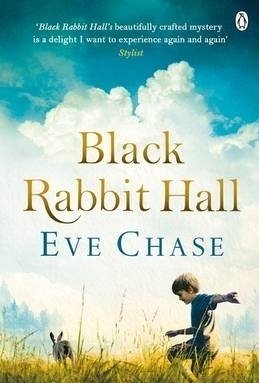
Black Rabbit Hall
Book
One golden family. One fateful summer. Four lives changed forever. Amber Alton knows that the hours...
Kara Skinner (332 KP) rated The Princess of Aenya in Books
Jul 20, 2020
Genre: Fantasy
My rating: 4 out of 5 stars
Princess Radia is struggling to rule Aenya, a once-mighty kingdom now all but cut off from the rest of the world. But her adopted brother, Zaibos, leader of Aenya’s army, rebels against her until she’s forced to go into hiding while he rules as a sadistic tyrant. Now Radia and her bodyguard Demacharon have to hide until they can take back Tyrnael. But Radia isn’t all that she seems. She might possess power greater than anything she or her allies imagined.
The Princess of Aenya by Nick Alimonos was a good book, but I think I would enjoy it more reading it a second time. From the beginning, there’s an onslaught of action and story coming from multiple characters at once. The main storyline follows Radia and Demacharon as they fight to survive. But Hugo and Esse, a soldier and a servant, are introduced, as well as Ugh, a Bogren, and Eros, an assassin hired to kill Radia.
Through alternating chapters, the reader has to follow all of these storylines before they eventually intertwine in the end of the book and, for me at least, this was difficult. Don’t get me wrong, I still enjoyed the individual storylines and characters.
Hugo and Esse deserve their own book. I would love for a companion novel to be made about them leading the rebellion in Tyrnael while Radia had to be in hiding. Esse was bred to be a servant, someone designed to not stand out or aspire to anything more than serving others. But she fought against that lifelong training to lead a rebellion against a sadistic tyrant. Before Zaibos, Tyrnael was at peace for a thousand years. No one had any experience protesting or rebelling because there wasn’t a need. But Esse stepped up and started to lead! Honestly, her story is just as fascinating as Radia’s, and a lot more relatable. I love stories about people who take their fate into their own hands so Esse’s story would be a great one.
I really liked Eros as well. He represents the dark side of Tyrnael. Just because there was peace doesn’t mean everyone was happy. Sexual intercourse is forbidden in Tyrnael. Eros was born from sexual intercourse so he and his mother were branded and ostracized. He was forced to become an assassin to support and protect his mother. Honestly, I wanted him to fail and succeed at the same time because succeeding meant killing Radia but it also meant the brand getting lifted from his mother.
However, while I enjoyed the characters and could follow and enjoy the plot overall, there’s still a lot I’m confused about. There are five storylines to juggle, six if you count Demarchon’s flashbacks. Not only are we following Radia, but we are also following Eros, Ugh, Esse, and Zaibos through their stories. It’s a lot to take in and keep straight.
The Princess of Aenya was an enjoyable read and the ending was satisfying. However, I would get a lot more out of the story if I reread it.
Get The Princess of Aenya on Amazon.
My rating: 4 out of 5 stars
Princess Radia is struggling to rule Aenya, a once-mighty kingdom now all but cut off from the rest of the world. But her adopted brother, Zaibos, leader of Aenya’s army, rebels against her until she’s forced to go into hiding while he rules as a sadistic tyrant. Now Radia and her bodyguard Demacharon have to hide until they can take back Tyrnael. But Radia isn’t all that she seems. She might possess power greater than anything she or her allies imagined.
The Princess of Aenya by Nick Alimonos was a good book, but I think I would enjoy it more reading it a second time. From the beginning, there’s an onslaught of action and story coming from multiple characters at once. The main storyline follows Radia and Demacharon as they fight to survive. But Hugo and Esse, a soldier and a servant, are introduced, as well as Ugh, a Bogren, and Eros, an assassin hired to kill Radia.
Through alternating chapters, the reader has to follow all of these storylines before they eventually intertwine in the end of the book and, for me at least, this was difficult. Don’t get me wrong, I still enjoyed the individual storylines and characters.
Hugo and Esse deserve their own book. I would love for a companion novel to be made about them leading the rebellion in Tyrnael while Radia had to be in hiding. Esse was bred to be a servant, someone designed to not stand out or aspire to anything more than serving others. But she fought against that lifelong training to lead a rebellion against a sadistic tyrant. Before Zaibos, Tyrnael was at peace for a thousand years. No one had any experience protesting or rebelling because there wasn’t a need. But Esse stepped up and started to lead! Honestly, her story is just as fascinating as Radia’s, and a lot more relatable. I love stories about people who take their fate into their own hands so Esse’s story would be a great one.
I really liked Eros as well. He represents the dark side of Tyrnael. Just because there was peace doesn’t mean everyone was happy. Sexual intercourse is forbidden in Tyrnael. Eros was born from sexual intercourse so he and his mother were branded and ostracized. He was forced to become an assassin to support and protect his mother. Honestly, I wanted him to fail and succeed at the same time because succeeding meant killing Radia but it also meant the brand getting lifted from his mother.
However, while I enjoyed the characters and could follow and enjoy the plot overall, there’s still a lot I’m confused about. There are five storylines to juggle, six if you count Demarchon’s flashbacks. Not only are we following Radia, but we are also following Eros, Ugh, Esse, and Zaibos through their stories. It’s a lot to take in and keep straight.
The Princess of Aenya was an enjoyable read and the ending was satisfying. However, I would get a lot more out of the story if I reread it.
Get The Princess of Aenya on Amazon.
